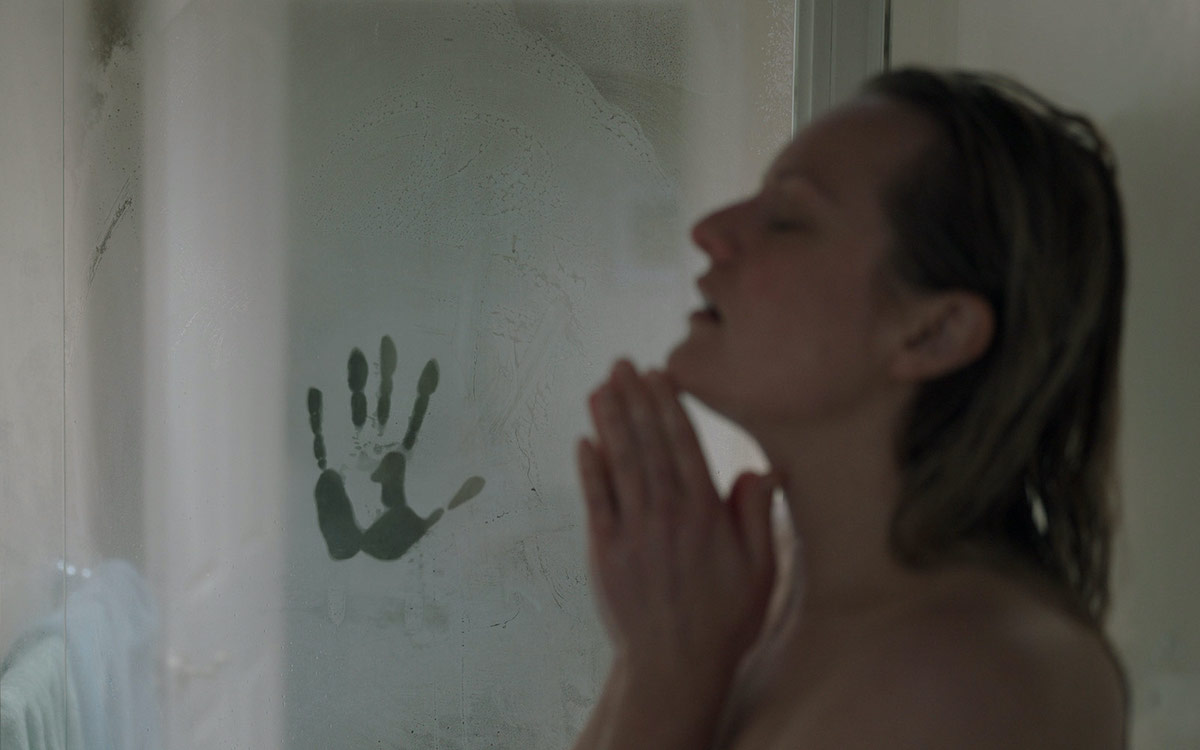Review: The Invisible Man Is Several Movies in One, All of Them Great
4/5 stars.

(Universal)
One of my all-time favorite genres of movies is women-led psychological-action thrillers of the 1990s. This was, for a time, basically Ashley Judd’s entire oeuvre but lots of other blockbuster stars (the likes of Julia Roberts and Sandra Bullock) dipped into the trend. These movies are peak Strong Female Lead, with those women hunting and being hunted by a manipulative man, either an ex or a current partner or just some obsessed stranger. Some are a bit campy, most are genuinely thrilling. I love all of them. For the last few years (ever since I discovered HBO Go has a rotating swath of them available), my favorite way to spend a lazy Sunday has been curled on the couch with takeout, wine, and some Ashley Judd.
Leigh Whannell’s The Invisible Man is the closest thing I’ve seen to one of these movies in about 15 years and I couldn’t be happier.
The Invisible Man is a few movies in one. (I’m not complaining–this is the cobbled-together nature of a good thriller.) The movie opens with Cecilia (Elizabeth Moss) leaving her controlling, abusive, wealthy tech genius husband Adrian in the dead of night. After hiding out with her sister’s childhood friend (played by Aldis Hodge, whose relationship to Cecilia I only know via a press synopsis because who has time for minor exposition when there is BIG THRILLER ACTION to be had??) and his daughter (Storm Reid) for a few weeks, she learns that her husband (Haunting of Hill House’s Oliver Jackson-Cohen) has died by suicide. OR HAS HE?
After Adrian’s “death,” Cecilia begins to experience all the signs of a haunting. These signs start small–a stove burner turned up dangerously high, a faucet left on–before turning violent. There is another version of this movie that would focus on the haunting part of this film before giving us a Big Twist but this isn’t that, although it is as scary as any ghost story. This movie gives us its plot in its title and in the trailer. There is no ghost here, only a living human monster–one who managed to secretly unlock the key to invisibility and who is using it to torment the woman who chose to leave him.
And while it is based on the H.G. Wells novel of the same name, the movie is heavily updated by focusing not on the man, but on the damage this kind of man could do to the people in his life.
This isn’t a movie about ghosts, or about technology. (The how of the invisibility is not exactly an expositional priority.) It is a movie about gaslighting. (As a side note, this movie then comes with all the kinds of trigger warnings you would expect from this subject, including visceral scenes of self-harm and intimate partner violence.) This is about a man who has the power to turn invisible and still, all he cares about is torturing the one woman he can’t control.
Elisabeth Moss gives a heartwrenching performance here, filled with that trademark Handmaid’s Tale style of heavy emoting while staring intensely just off of center camera.
The movie has some plot holes, but none so massive that the audience isn’t able to fill in the gaps, and it’s so engaging that it earns itself enough goodwill for most viewers to not really mind. This is a great movie to see in a theater but it’s also definitely going to work its way into my lazy Sunday rotation for years to come.
Want more stories like this? Become a subscriber and support the site!
—The Mary Sue has a strict comment policy that forbids, but is not limited to, personal insults toward anyone, hate speech, and trolling.—
Have a tip we should know? tips@themarysue.com